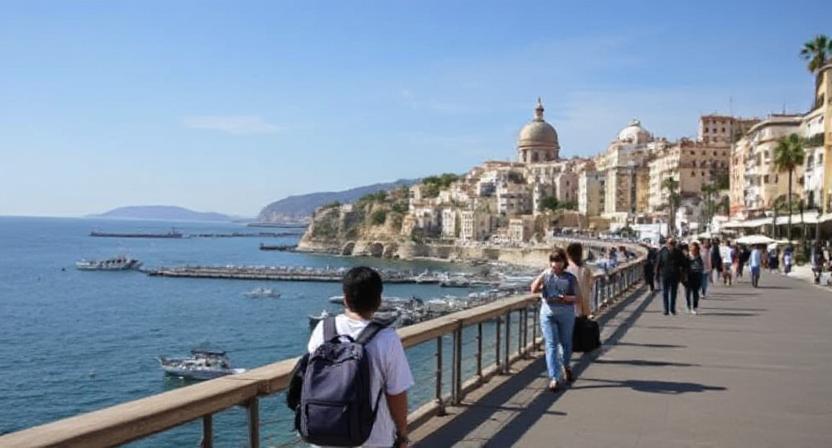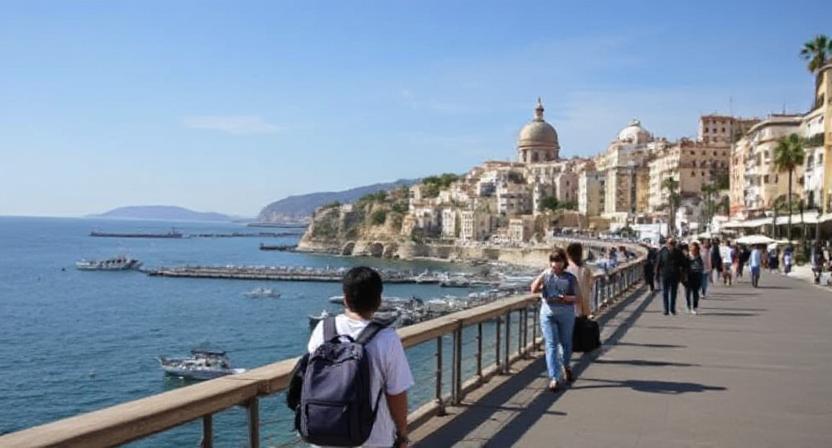Published on
October 7, 2025

Spain’s tourism industry is seeing a strong slowdown in 2025, as lower spending by European and American tourists weighs on the overall growth path. As per Exceltur, the sector now predicts 2.8% expansion of tourism-related activity for 2025, down from a previous forecast of 3.3% and a dramatic decline from 5.5% growth last year. The slowdown is primarily due to economic uncertainty globally, evolving expenditure behavior, and a post-pandemic shift in tourism trends in Spain.
Impact of Weaker Spending from European and U.S. Tourists
European and U.S. tourists, who traditionally contribute significantly to Spain’s tourism industry, have shown signs of reduced spending this year. Despite an increase in the number of visitors, their average spending per trip has decreased, which has affected the overall revenue generated by tourism. In particular, tourists from key markets like Germany, France, and the U.S. have shown lower spending levels, contributing to the slower growth seen in 2025.
This drop in spending is particularly noticeable in sectors such as luxury tourism, fine dining, and shopping, where higher-value transactions typically occur. As a result, although the total number of tourists has risen, tourism receipts have not grown at the same pace.
Exceltur’s Revised Tourism Forecast: Contribution to GDP Set to Decline
The forecast for tourism’s contribution to Spain’s GDP in 2025 has been revised down from 13.5% to 13.1%. Exceltur now projects that tourism-related activities will contribute a smaller share of the country’s economic growth compared to previous years. This decline highlights how tourism, once the dominant driver of Spain’s economic recovery, is no longer expected to outpace overall economic growth.
For 2025, Spain’s GDP is projected to grow at a rate of 2.6%, with the tourism sector growing at a slower pace. The industry is no longer the main dynamizer of the Spanish economy, according to Exceltur’s Vice President, Oscar Perelli, who noted that the sector will now align more closely with the broader economic growth forecast for the year.
Domestic Tourism: A Stabilizing Force Amidst Declining International Visitors
While international tourism has faced challenges, domestic tourism has remained more stable. Exceltur noted that domestic tourists are continuing to visit Spanish destinations, helping to stabilize the country’s tourism sector amid the decline in international arrivals. This trend has become especially important in the off-season months, when domestic travelers account for a larger share of visitors to Spain’s beaches, mountain regions, and cultural landmarks.
In addition, domestic tourism tends to benefit local businesses in ways that international tourism does not, by generating consistent revenue for regions not heavily reliant on international visitors.
Slower Sales Growth in Tourism Businesses: A Reflection of Changing Trends
The tourism sector’s slower growth in sales during 2025 has been most visible in the hotel, airline, and restaurant industries. In the summer season, sales across hotels, airlines, restaurants, and other tourism-related businesses rose by just 2.8%, a sharp decline from the 6.3% growth recorded in 2024. This slowdown highlights changing spending behaviors, particularly in high-end and luxury services.
The 4th quarter of 2025 is expected to see an even slower growth rate, with Exceltur forecasting only a 2% rise in sales. As a result, businesses in the tourism and hospitality sector will need to adjust their marketing strategies and service offerings to cater to the evolving needs of budget-conscious travelers and ensure continued profitability.
Key Markets: Shifting Spending Habits and New Opportunities
The reduction in spending is particularly evident among tourists from key European markets such as Germany, France, and Turkey, as well as from the United States. Many of these travelers have traditionally been high spenders, especially in areas such as luxury shopping, fine dining, and exclusive experiences. However, their spending habits are evolving, with many opting for more affordable accommodations and experiences.
Despite this, an increase in visitors from Britain, China, and Poland has somewhat offset the trend. British tourists, who make up 26.5% of Spain’s total visitors, have continued to support the sector, as have Chinese and Polish travelers, whose numbers have risen in recent months. This shift signals an opportunity for Spain to diversify its tourism offerings and cater to a more international audience with varying preferences and budgets.
Sustainable Tourism: A Key Focus for Spain’s Future Growth
In response to these challenges, Spain is increasingly focusing on sustainable tourism as a way to ensure long-term industry growth. The emphasis on eco-friendly tourism practices, local community involvement, and responsible travel aligns with global trends towards sustainability. Spain is encouraging tourists to explore lesser-known regions, extend their stays into the shoulder seasons, and engage with local cultures in ways that support eco-tourism and community development.
By promoting responsible travel that minimizes environmental impact, Spain can help sustain its tourism industry while ensuring economic benefits for local communities. Additionally, sustainable infrastructure investments, such as renewable energy in tourism facilities and the promotion of green transport options, will help the country meet its environmental goals and tourism growth targets.
Looking Ahead: The Future of Spanish Tourism in a Changing World
While Spain’s tourism industry is experiencing slower growth than in previous years, the country remains a top destination for travelers worldwide. The focus now is on ensuring that growth is balanced with sustainability, cultural preservation, and economic inclusion. Spain’s tourism sector will continue to adapt to the challenges posed by changing travel patterns, economic shifts, and the growing demand for sustainable travel.
By focusing on eco-tourism, regional tourism diversification, and sustainable development, Spain can continue to be a leader in the global tourism industry, offering visitors authentic, responsible, and high-quality travel experiences. The country’s efforts to protect its environment, preserve its heritage, and create inclusive economic opportunities for local communities will ensure that tourism remains a powerful engine of growth and development in the years to come.
A Sustainable Future for Spain’s Tourism Industry
While Spain’s tourism expansion slowed down in 2025, emphasis on sustainability and inclusive development presents a bright future for Spain’s tourism industry. While Spain adopts sustainable tourism practices and develops more eco-friendly infrastructure, the nation is in good position to remain a leading destination for overseas visitors looking for meaningful, responsible travel. The future of Spanish tourism is in balancing growth with preservation, emphasizing both economic and environmental sustainability to sustain the success of the industry over the long term.

